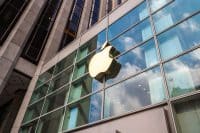Home » US business news » Apple and Broadcom lose appeal over billion-dollar Caltech patent case
Apple and Broadcom lose appeal over billion-dollar Caltech patent case
https://www.whatjobs.com/news/usa/us-business-news/apple-and-broadcom-lose-appeal-over-billion-dollar-caltech-patent-case

By Nithya Bose in US business news, posted June 27, 2023

The Supreme Court has delivered a blow to Apple and Broadcom by not hearing their appeal in a billion-dollar patent case by the California Institute of Technology.
The court's decision paves the way for a jury trial focused solely on determining the damages both companies should pay for infringing Caltech's wireless technology patents.
While Caltech initially secured a $1.1 billion verdict in the case, a lower court ruled last year that the damages amount needs to be recalculated.
Read More: 3M settles $10.3 billion water pollution lawsuit
Caltech, a renowned private research university in Pasadena, holds patents on technology that enhances Wi-Fi speed and range on mobile devices.
In 2016, the university filed a lawsuit against Apple and Broadcom in federal court, alleging unauthorized utilization of its patented inventions.
Caltech claimed millions of Apple devices, including iPhones and iPads equipped with Broadcom Wi-Fi chips, infringed upon its patents.
Apple and Broadcom sought a reconsideration of the patents' validity by a Patent and Trademark Office administrative court.
Read More: Gannett files lawsuit against Google over monopolization of ad-tech markets
Despite their efforts, the patent office tribunal reviewed and ultimately upheld the patents' validity, delivering a significant victory to Caltech.
In 2020, a Los Angeles jury sided with Caltech, ruling that Apple and Broadcom had infringed upon the patents and should jointly pay $1.1 billion in damages.
The companies subsequently appealed the decision.
In February 2022, the US Court of Appeals for the Federal Circuit, which handles patent appeals, affirmed the jury's patent validity and infringement findings.
However, the court ordered a fresh trial to determine the damages, which has yet to occur.
Need Career Advice? Get employment skills advice at all levels of your career
The Federal Circuit also determined that Apple was prohibited from presenting certain arguments in federal court that it could have raised during the Patent Office administrative proceeding.
Apple and Broadcom escalated the case to the Supreme Court, primarily challenging the prohibition on making crucial arguments.
In January, the Supreme Court sought input from the Biden administration on whether to hear the appeal.
In May, the US solicitor general advised against accepting the case, stating the Federal Circuit had correctly applied the law.
As is customary for such denials, the Supreme Court did not provide a rationale for its decision to decline Apple and Broadcom's appeal.
Follow us on YouTube, Twitter, LinkedIn, and Facebook.














